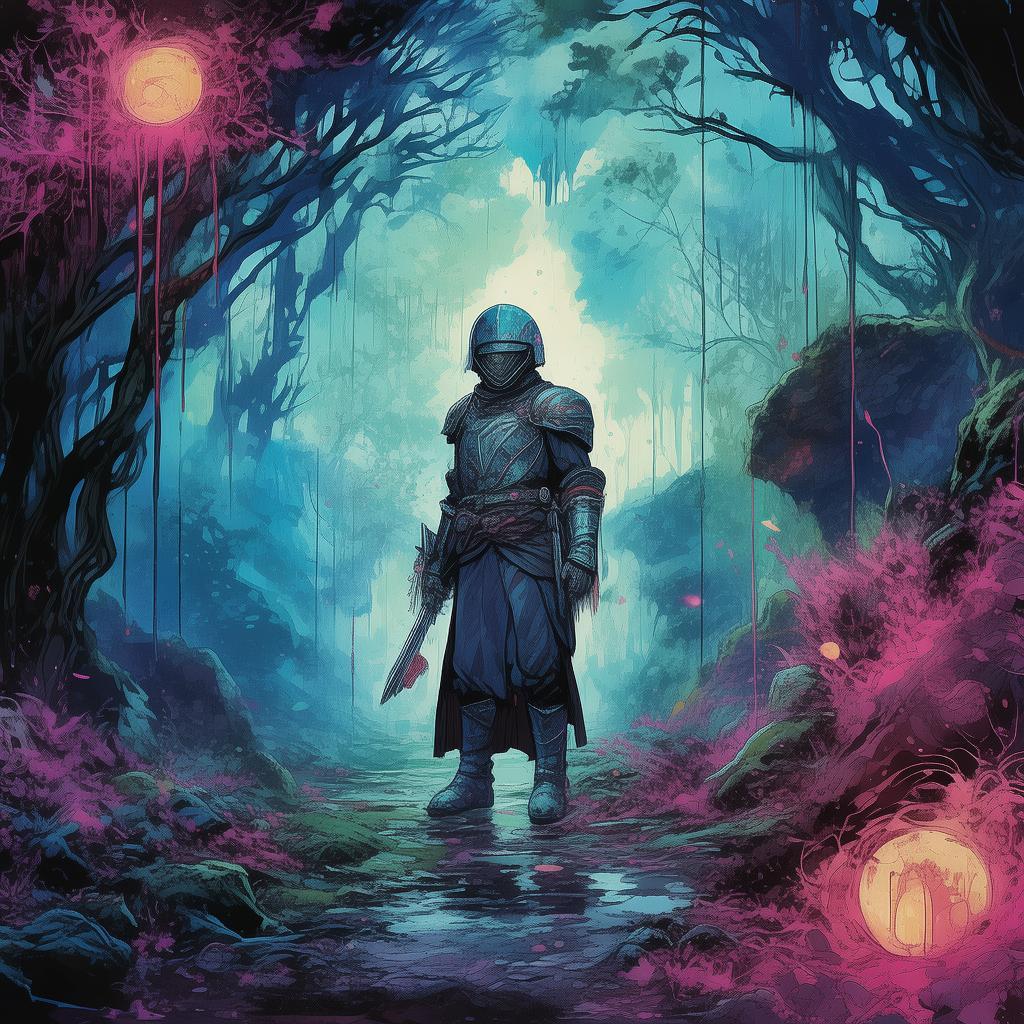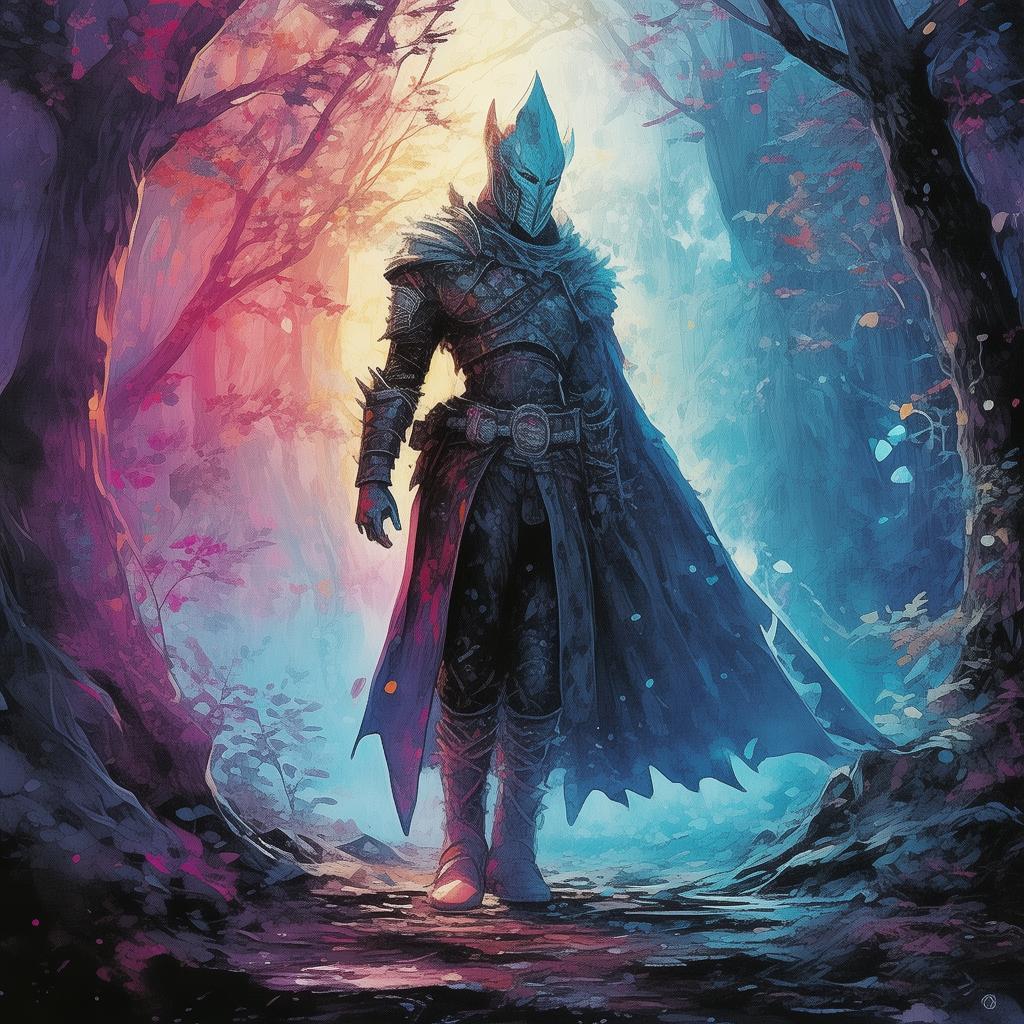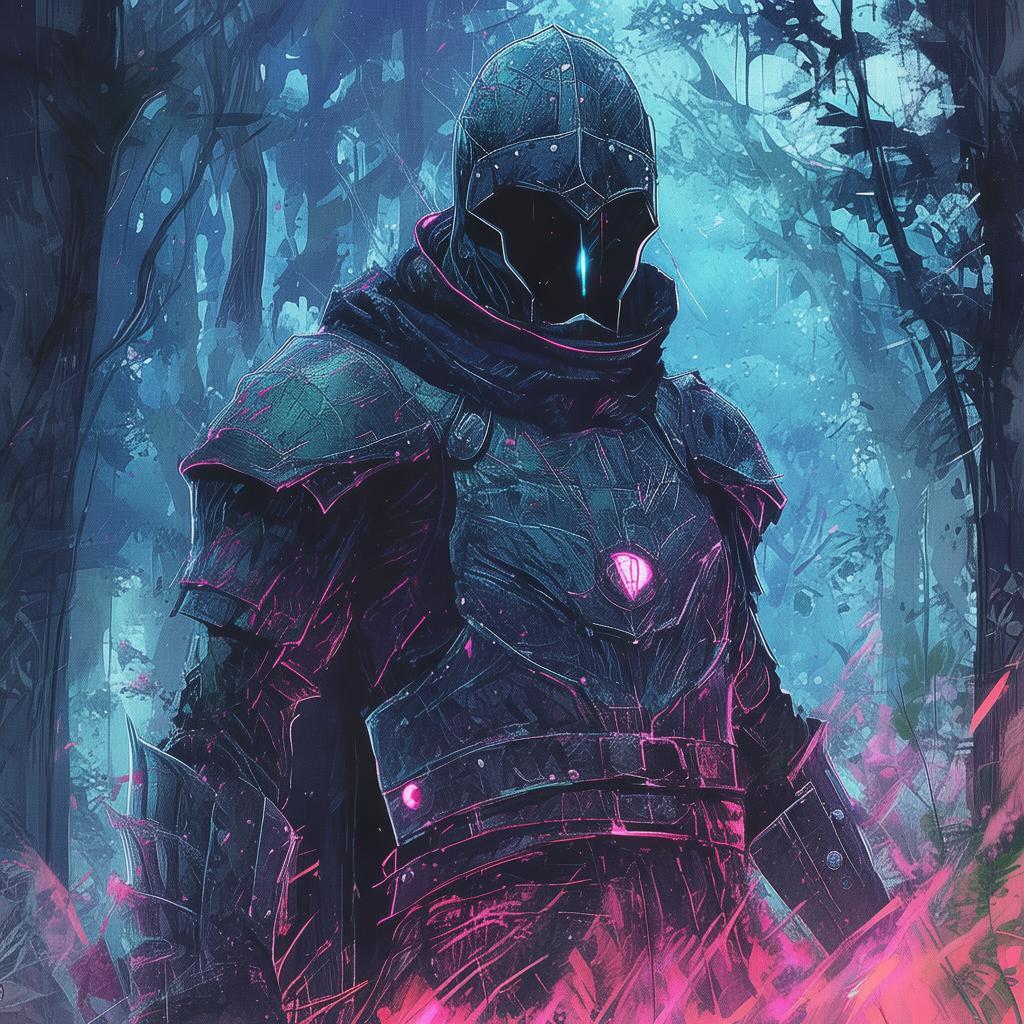The Last Act: Echoes of the Fallen Stage
The city of Theatrum, once a beacon of culture and art, now lay in ruins. The echoes of laughter and applause had been replaced by the eerie silence of a world that had fallen apart. Amidst the ruins, a solitary figure moved with a sense of purpose. His name was Lysander, a man who had seen better days. His once vibrant costume now tattered, his face etched with lines of weariness and a hint of the actor he once was.
Lysander had been part of a troupe, a traveling ensemble that brought the magic of theater to the hearts of those who had lost everything. But now, the world was a stage where there were no more spectators, only survivors. The troupe had scattered, leaving Lysander alone to navigate the treacherous landscape of the fallen city.
As he wandered through the ruins, Lysander stumbled upon an old theater, its once-gleaming marquee now a shadow of its former self. He pushed open the creaking door and stepped into the dimly lit foyer. The scent of dust and decay filled his nostrils, but it was the sight of the empty seats that struck him the most. He wandered into the main hall, where the stage had been, and found it just as desolate.
On the stage, Lysander found an old script, a relic from a bygone era. He picked it up and began to read, his eyes scanning the pages. The script was for a play he had performed countless times, a story of love, loss, and redemption. But this time, as he read, something felt different. There was a sense of familiarity, as if the words were calling out to him from the depths of his memory.
As he continued to read, Lysander's thoughts began to intertwine with the characters on the page. He felt their pain, their joy, and their struggle to find meaning in a world that had abandoned them. It was then that he realized he was not just reading a script; he was becoming the story.
With a newfound resolve, Lysander began to act out the scenes from the script. He spoke the lines with passion, his voice echoing through the empty hall. The actors within him came to life, and he found himself lost in the world of the play. It was as if the theater itself was a sanctuary, a place where he could escape the harsh realities of the world outside.
One night, as Lysander performed, a group of scavengers stumbled upon the theater. At first, they were curious, but as they watched, they were drawn in by the magic of the performance. They began to cheer, and for a moment, Lysander forgot about the chaos outside. He was just an actor, bringing a little bit of joy to those who had lost so much.
But the peace was fleeting. The scavengers' leader, a man named Thorne, approached Lysander after the performance. "You have talent," he said, his voice tinged with a hint of respect. "Why not join us? We could use someone like you to entertain us on our travels."
Lysander hesitated. The offer was tempting, but he had seen too much cruelty and betrayal in the world. He wanted to believe that there was still good to be found, even in the darkest of times. "I can't leave the theater," he replied. "It's my home."
Thorne's eyes narrowed. "You think you can hide here forever?" he asked, his voice hardening. "The world is dangerous, and you're not safe."
Lysander stood his ground. "I'll stay here. This is where I belong."
Thorne's expression softened. "Very well," he said, turning to leave. "But remember, the world is a harsh place. You may not always have a choice."

As Thorne and his group disappeared into the night, Lysander returned to the stage. He knew that the theater could not protect him from the outside world, but it was a place where he could find solace and purpose. He would continue to perform, to bring a little bit of light to those who had lost everything.
As the days turned into weeks, Lysander's performances became more frequent. The scavengers, drawn by the magic of the theater, began to visit more often. They brought stories of their own, tales of survival and resilience. And in these stories, Lysander found a new purpose. He was not just an actor; he was a vessel for the collective memory of the fallen city.
One day, as Lysander performed, a young girl approached him after the show. She was the first new face to see his performances, and her eyes were filled with wonder. "You're really good," she said, her voice tinged with awe. "I wish I could be an actor too."
Lysander smiled. "You can be," he replied. "Theater is for everyone. It's about telling stories, about connecting with others, even in the darkest of times."
The girl nodded, her eyes sparkling with hope. "Thank you," she said, before running off to join the scavengers.
Lysander watched her go, feeling a sense of pride and fulfillment. He had found a way to make a difference, even in a world that had been stripped of its former glory. The theater had become more than a sanctuary; it was a beacon of hope, a place where the human spirit could find solace and renewal.
And so, Lysander continued to perform, to tell the stories of Theatrum, to remind the world that even in the darkest of times, there was still light to be found. The theater, once a place of laughter and applause, had become a place of solace and resilience, a testament to the enduring power of art and the human spirit.
✨ Original Statement ✨
All articles published on this website (including but not limited to text, images, videos, and other content) are original or authorized for reposting and are protected by relevant laws. Without the explicit written permission of this website, no individual or organization may copy, modify, repost, or use the content for commercial purposes.
If you need to quote or cooperate, please contact this site for authorization. We reserve the right to pursue legal responsibility for any unauthorized use.
Hereby declared.









